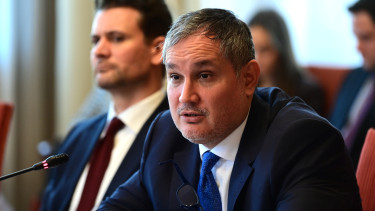Hungarian fuel prices remain under regional average
As we reported yesterday, most likely due to the strengthening of the forint, the wholesale gross list price of petrol will be lowered by HUF 5 per litre, and the price of diesel will be trimmed by HUF 4 per litre on Friday (17 May). Accordingly we should find the following (average) prices at the pumps from tomorrow:
- 95-octane petrol: HUF 607 /litre
- Diesel: HUF 605 /litre
Petrol will cost 6.6% (HUF 37) more than at the end of last year, while diesel will be 2.0% (HUF 12) more expensive.
HOWEVER, COMPARED TO THEIR RESPECTIVE PEAK PRICES THIS YEAR, PETROL WILL BE HUF 43 (-6.6%) PER LITRE CHEAPER AND DIESEL WILL COST HUF 56 (-8.5%) LESS.

According to the latest statistics by the European Commission, domestic fuel prices remain lower than the average in Hungary's neighbouring countries. This was the reason why the Minister of National Economy has not announced any new measures, such as a price freeze, but Márton Nagy stressed that the government would continue to closely monitor developments on the fuel market.
he government concluded at its meeting today that with the current reductions we have reached the average price in neighbouring countries,
he told a press last Wednesday.
There is order, but it must be maintained. The government still expects traders to maintain it. Every two weeks the government will take a look at these prices. Coordination and cooperation has been sufficient, Márton Nagy said at the event, meaning that no new measures or steps, such as the price freeze, have been announced.
Traders can absorb these cuts in profit margins,
he opined.
Before the announcement, two scenarios seemed likely: (i) no substantial change in the government's behaviour, and (ii) a flexible price regulation. The latter would have been essentially ineffective, as Hungarian prices reached the average price in neighbouring countries considered as reference prices. Hence, there was no surprise, and traders could breathe a sigh of relief, at least that they were not hit with a hard, inflexible price control. True, the price of this was a 'voluntary' reduction in their margins. Voluntary = "You cut your prices or we'll cut them for ya!"
The average prices of Hungary's immediate region, i.e. the neighbouring countries remains the reference. The European Commission's Weekly Oil Bulletin shows that domestic prices remain below the regional average, although the difference is tiny in the case of diesel (HUF 607 vs HUF 608).


You can read more about the winding road leading to this point in the article below.






